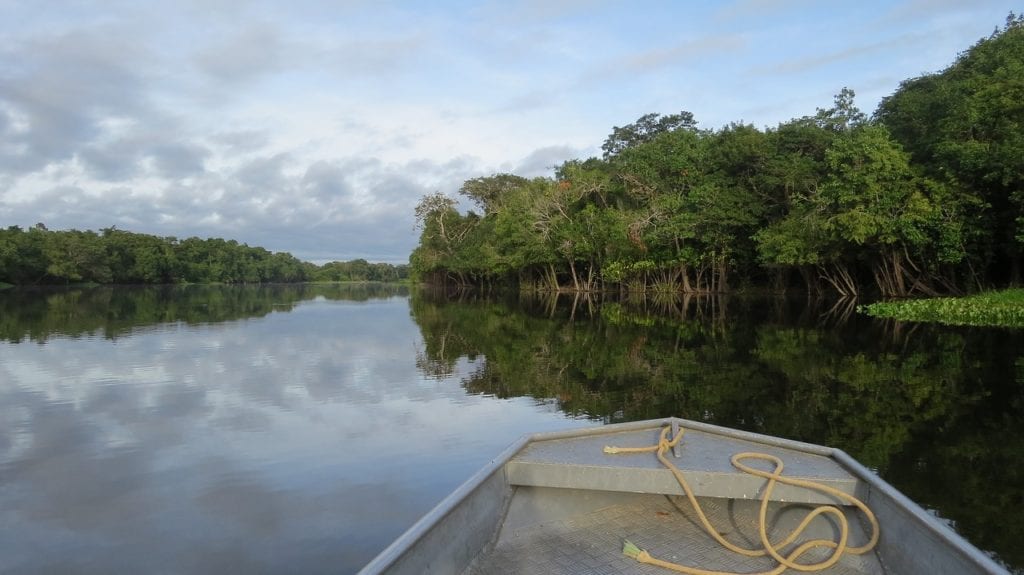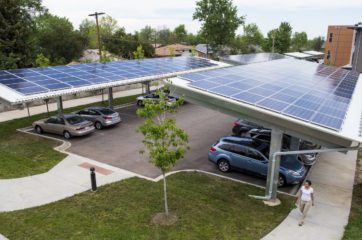The rise of right-wing populists is threatening our planet–& Brazil just elected one of them
It seems a grim irony that at the very time we need unwavering climate action, we seem to be electing more and more pro-business strongmen around the world. Brazil officially joined a growing list of countries that have elected into highest office men backed by big business, who undermine democratic values and are largely unconcerned by climate change.
Why Brazil’s choice concerns us all
Last weekend, Jair Bolsonaro won the presidential election in Brazil, the largest country in South America, and the home to the largest share of the Amazon rainforest–one of the largest carbon sinks on Earth, soaking up a staggering 600 million tons of carbon dioxide from the atmosphere each year.
Bolsonaro, besides being a racist, sexist, and homophobic advocate of torture and dictatorship, also presents a serious threat to the environment, and his election should ring alarm bells for those of us who understand we have a limited time to get our act together.
The far-right nationalist ran on pledges to open up the Amazon to agribusiness, abolish Brazil’s environmental agency, roll-back protections, and trample on indigenous rights. Sound familiar? Yeah, he’s been dubbed the ‘Trump of the tropics’.
The rhetoric and policy that will likely come from his presidency is a cause of grave concern in a country that is not only the largest economy in South America, but an emerging global power, and guardian of a crucial natural reservoir. These have all been described as “a threat to the climate of the entire planet.”
Brazil has jurisdiction over more than half of the Amazon rainforest, which has already seen massive deforestation due to illegal farming and logging. But strides were being made to safeguard the forest and stop these illegal and problematic practices, at least in theory. One of those initiatives included the use of drones to monitor deforestation and track illegal farming in the rainforest.

A Golden Opportunity
Beyond the clear environmental disaster such policies would be, they are also short sighted and will not serve the interests of Brazil–even as defined by the president-elect.
For starters, the Amazon river is estimated to hold around one-fifth of the planet’s freshwater resources. This is not just worrisome when considering the significant threats faced by the region presently, but should rather be seen as Brazil’s golden opportunity. Bolsonaro, if truly committed to his platform of strengthening Brazil’s place in the world through commerce and influence, should be thinking about protecting the Amazon as his most prized resource. Because it is, and it could in fact give the country immense advantages in the future. We are due for a global water crisis very soon, meaning it will be no small feat that Brazil has such immense reservoirs of the crucial resource.
Professor Denise Garcia, a Brazilian scholar of International Law, tells us that “legally speaking, it will be impossible for [Bolsonaro] to rollback protections of the Amazon and of indigenous peoples. That would be unconstitutional and against many international agreements Brazil is a key party to”. Adding that, “If we don’t protect the Amazon, we will be putting our treasured water sources at risk, which would be a tragedy not just for Brazil, but for humanity.”
It is important to note that corporations have taken serious notice of the environmental impacts of Brazil’s food exports. In fact, more than 60 companies, including McDonalds, Unilever and Walmart, have signed on to a manifesto, calling for immediate action to stop deforestation in the region. Walmart and Unilever have since gone further by committing to achieve zero net deforestation in their supply chains by 2020. This means that international corporations will no longer be buying food that comes at high environmental costs to Brazil, and therefore it does not make any economic sense to pursue such endeavors. If Bolsonaro is truly committed to bolstering commerce and exports from his country, destroying the Amazon is certainly not a way to achieve that.
Moreover, Brazil has immense opportunities for the development and deployment of renewable sources of energy. The country has prided itself for its low reliance on energy imports, due to massive hydropower production and the use of Ethanol in auto fuel. Perhaps it is time to direct Bolsonaro’s hawkish policies towards furthering the clean energy sector in Brazil, using this as a way to increase jobs and open up new avenues for the country to become an energy exporter for the region.
The problem(s) with ‘strongmen’ politics
Pointing out that far-right populism is on the rise globally is anything but a revelation at this point. We have seen the world elect Trump in the U.S., Duterte in the Philippines, Erdogan in Turkey, Sisi in Egypt, and now Bolsonaro in Brazil. They join a list of authoritarian not-so-much-elected leaders in China, Russia, and Saudi Arabia, which taken in conjunction pose a serious threat to many things we hold dear –the environment being one of them.
It is no coincidence that all of these men rose to power backed (and back-ing) big business, most notably in the energy sector. There are serious and potentially irreversible environmental implications of such waves of far-right leaders, who tend to be pro big business and largely anti regulation, playing to the interests of some of the world’s most environmentally damaging actors.
That being said, there is a chance to increasingly align national security priorities with environmental action and protection. We already know that energy generation, water scarcity and climate-related migration, will pose increasing threats to security around the world. This also means that even the most far-right leaders will need to recognize as much, and align their policies with the future. That much is true for Brazil at the moment.
We stand at a crucial point in time, at which our present actions (or inaction) will very much determine the future we’ll be able to have on this planet. It is therefore a tragic irony to see the shift the world is taking towards electing Trump-like leaders, who back business interests over science and logic. It is worth noting that the more politicians like Bolsonaro are elected around the world, the more Trump is legitimized and cemented as a world leader. It was only a few months ago even when we heard outcry from all over the world about how under Trump, the United States had given up its role as a global leader, and yet here we stand, with countries following his ideas, policies, and style. America remains, after all a leading force in the world, just no longer one for the better.










